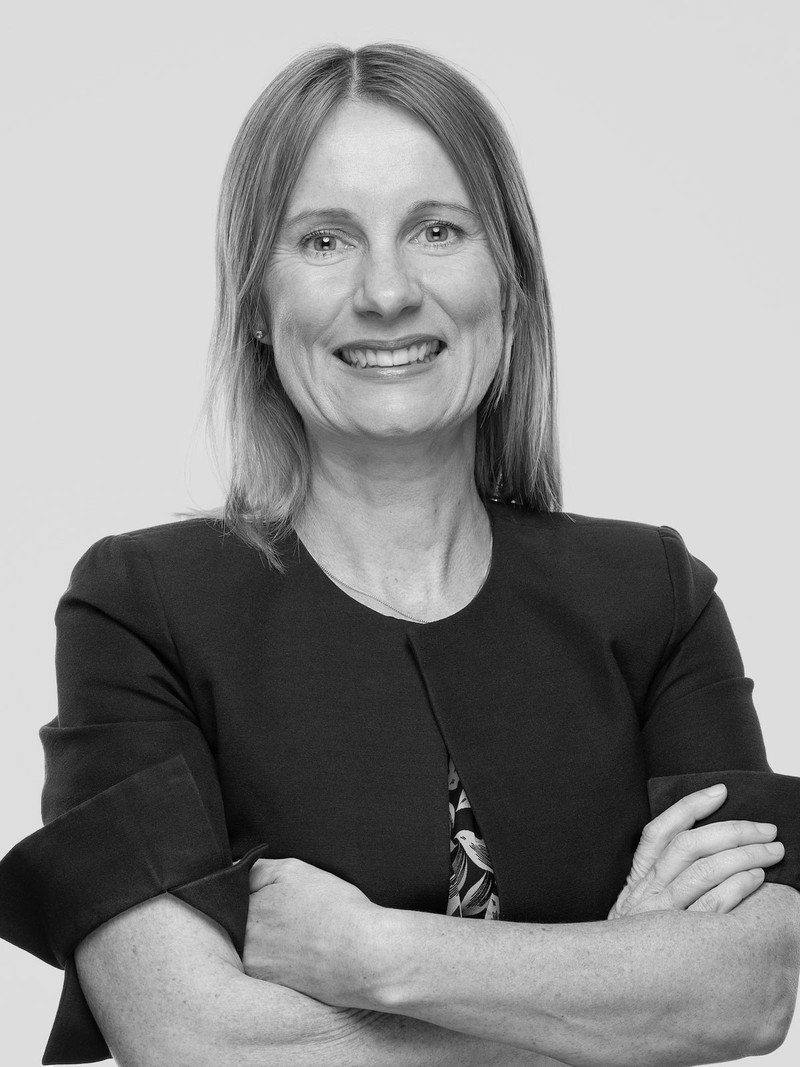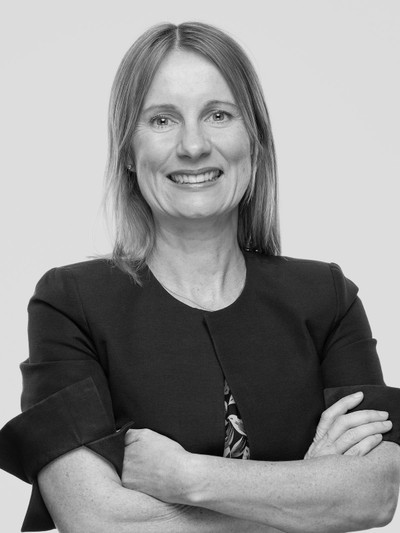

My Rules For Success: Michelle Mitchell, CEO, Cancer Research UK
Find Your Why
I’ve always had a very personal motivation to be in this industry. From a very young age, I had a very real sense of injustice and what the issues were affecting everyone from the people who lived at the bottom of my street through to the other side of the world. I’ve always been inspired to try and make a difference to people’s lives somehow, especially those of people who are in need. I grew up on Merseyside in the 80s and was the first in my family to go to university. I studied economics at Manchester before completing an MSc in public policy and politics at UCL. Around the same time, I also worked part time for Donald Dewar, the MP. That gave me some proper experience in combining the academic with the practical, especially when it came to tackling the big issues around the economy, social justice and equality.
Identify Your Own Route
Working for Donald, it dawned on me that my desire to change the world wasn’t going to be satisfied in politics, but might be in the charity sector. Charitable organisations felt like an excellent route to work with some fantastic people on the issues that matter. I was very passionate about giving a voice to the issues that straddle the political divides – like those affecting NHS – by working with businesses and corporate partnerships to build broad coalitions and collaborate on positive change.
Always Keep Moving & Learning
My first major charity role was at the NSPCC when I was appointed its governmental affairs adviser in 2000. Two years later, I took on the job of director general at Age UK before moving on to become chief executive of the MS Society, and that led to the CEO role here at Cancer Research UK. But I've always combined my corporate work with volunteering as a trustee or non-executive. I’ve found it to be crucial to work with as many organisations as possible and with different people on a variety of issues. Other charities I’ve been involved with over the years include The Young Women's Trust, Power to Change and NHS England, all of which have expanded my understanding of how charities work and how to better drive change and impact. Throughout my career, continuing education has played a significant role. After studying at Manchester and UCL, I also attended INSEAD, the business school in Fontainebleau, near Paris. I completed the executive programme there and then went to Harvard Business School to attend their leadership and governance programme at the John F. Kennedy School of Governance.
Build Your Own Pillars Of Success
Corporate experience, voluntary work and my education have formed the three pillars of my success. They’ve all been brought together by a passionate belief in charities as a vehicle for social change, which is what has propelled me forward. It’s very hard to be in this sector without that personal motivation. For me, I’m very motivated by the knowledge that one in two of us will get cancer in our lifetime – every family member, friend, loved one is in some way touched by cancer and the scale of the social problem cannot be denied. Many of the people I work with daily have that understanding, and sometimes direct personal experience of cancer. I watched my own mother nurse one of her sisters, and I’ve seen the impact on the people left behind when their loved ones die of cancer.
Take On More Responsibility Whenever You Can
It's been my experience that you often start a career with a specialism. But as you take on more responsibilities, maybe as a director or head of department, and then a board member or a chief executive, you have to know how to combine different skills sets – including management and leadership. As well as the expertise you bring, there’s significant general management training that's required to lead some of the most impactful charities, not just here in the UK, but across the world. We’re the largest independent funder of cancer research in the world, so that requires a certain breadth of scope and set of skills. In the charity sector, you must also get used to working in collaboration and partnership with a range of international federations. For example, when I was working with the MS Society, it was common for the leading MS charities in the world to come together on specific projects. We pooled all our resources to drive a global strategy in an area of huge unmet need. But that’s what really helps you develop the kind of global perspective needed to take on the next challenge and move up to the next level in terms of your personal role too. You very quickly realise you’re not going to achieve anything on your own.
Don’t Be Afraid To Take The Next Step
I always took every opportunity I could to develop my skills. That’s why, when the role of CEO at Cancer Research UK came up, it felt like a natural next step instead of anything daunting or intimidating. I’d allowed myself to grow my knowledge, my experience and my networks in a range of different settings – plus, I chose the role and the organisation I wanted to work for with great care. They’d also chosen me with great care, so we were off to a good start. I felt comfortable – not least because I had a clear view of the direction we needed to take and the kind of people and skills that we needed to succeed today and tomorrow. I also had a deep understanding of the people we were there to serve and what their needs, aspirations and requirements were of the charity.
Don’t Expect To Do It All Yourself
When you look at Cancer Research UK, it’s clear that no one person is going to beat cancer. It's a question of so many people contributing – from Nobel Prize winners and leading researchers through to the doctors and nurses supporting people through their journey. It's the volunteers in the shops, the people baking cakes, the people running Race for Life, the generous philanthropists who invest their money and ask for impact. And in my mind, I see myself as a convener of the best team possible to make it all a reality. We need to be able to make the quickest progress we can in beating cancer together. Trust and confidence are two critical elements in any team. I always try to combine competence with compassion, because that’s when you can have the best relationships with people. As a leader, you need to set the direction of the business and map the skill, capabilities and competences that are required to do that, especially in an ever-changing world. Naturally, teams and personal circumstances of individuals change over time, but it’s about how you adapt to those changes to make sure you’re working with the best people. Open and inclusive recruitment is another important factor, and something we really pride ourselves on.
Learn To Face The Challenges Head On
As a leader, you’re going to come up against numerous challenges. For us, we saw how significantly Covid affected cancer patients – specifically their access to screenings, treatments, surgery and sometimes information. For us as a charity, it was one of the biggest challenges we’ve ever faced and we were under immense pressure to react – not only to the immediate crisis, but on a long-term direction in an uncertain environment. I felt a huge responsibility to steward the organisation through that period – to identify the opportunities and seize them to survive, thrive and build stronger foundations for the future.
We were forced to cut staffing numbers by nearly 25% and cut back on research for a period. But we also made some critical investment decisions, not least in terms of data and digital transformation. We also grew our philanthropy operation and expanded into digital fundraising. It’s fair to say we sped up our operations no end. That enabled us to set a new long-term direction for the charity over a ten-year period – so it’s about looking at the positives. As a business leader, it’s always important to look for the silver linings, and we just posted the highest fundraising contribution and highest efficiency ratios in our history in our most recent annual report. There’s always a bright spot on the horizon.
Fix Your Eyes On The Future
I really want to continue telling the story of our research and the difference the science and scientists have made. In the charity sector, it’s important to demonstrate the efficiency and efficacy of the work and its impact. You have to be so transparent – it’s the only way to build trust with the public and show them you have integrity. Accountability in your operations is also crucial, and you have to work hard to cherish and protect your reputation.
At Cancer Research UK, we’re a team of many talents. While I might have the responsibility of being the CEO, there’s talent everywhere. As a leader, it's about how you mobilise that talent but it’s also crucial to carve out personal time so you can perform at your best. I’m the mother of two teenagers and in my personal life they’re my number one priority. I also keep fit – I run, do yoga and I’ve just started playing tennis again. Physical activity is a great tool to have in your arsenal. But when you’re in a position of authority, you do have to recalibrate your personal expectations – specifically when it comes to spontaneity and pursuing other interests. This chapter in my life is 100% committed to my work and hopefully there'll be other times in my life when I can pursue my passion for Victorian literature or something else.
Be Proud Of Your Work
I'm unbelievably proud of this charity. We talk about impact in decades, but something that took my breath away was seeing the difference Cancer Research UK's work has had on cervical cancer and the potential that now exists to eliminate it as a public health issue in England. Thanks to the research we’ve helped fund, there’s been a 90% reduction in cases – which makes elimination possible. It also offers a great deal of inspiration and hope about what other types of cancers we can diagnose early, prevent and treat effectively, so everybody gets to live longer, more fulfilled lives.
If I could give anyone advice, it would be to choose the organisation you want to work for – and not let it be the other way around. If it’s your choice, you'll be in an environment where you’ll do your best work. Follow your passions, and don't be afraid of zigzagging because you'll learn from all sorts of people. While I haven’t had personal mentors, I have been lucky enough to have a series of work colleagues who I respect immensely, who have provided advice and counsel throughout the years. Sharing similar challenges and issues with people in the same position can be a very enlightening and supportive act.
For more information, visit CancerResearchUK.org
DISCLAIMER: We endeavour to always credit the correct original source of every image we use. If you think a credit may be incorrect, please contact us at info@sheerluxe.com.

